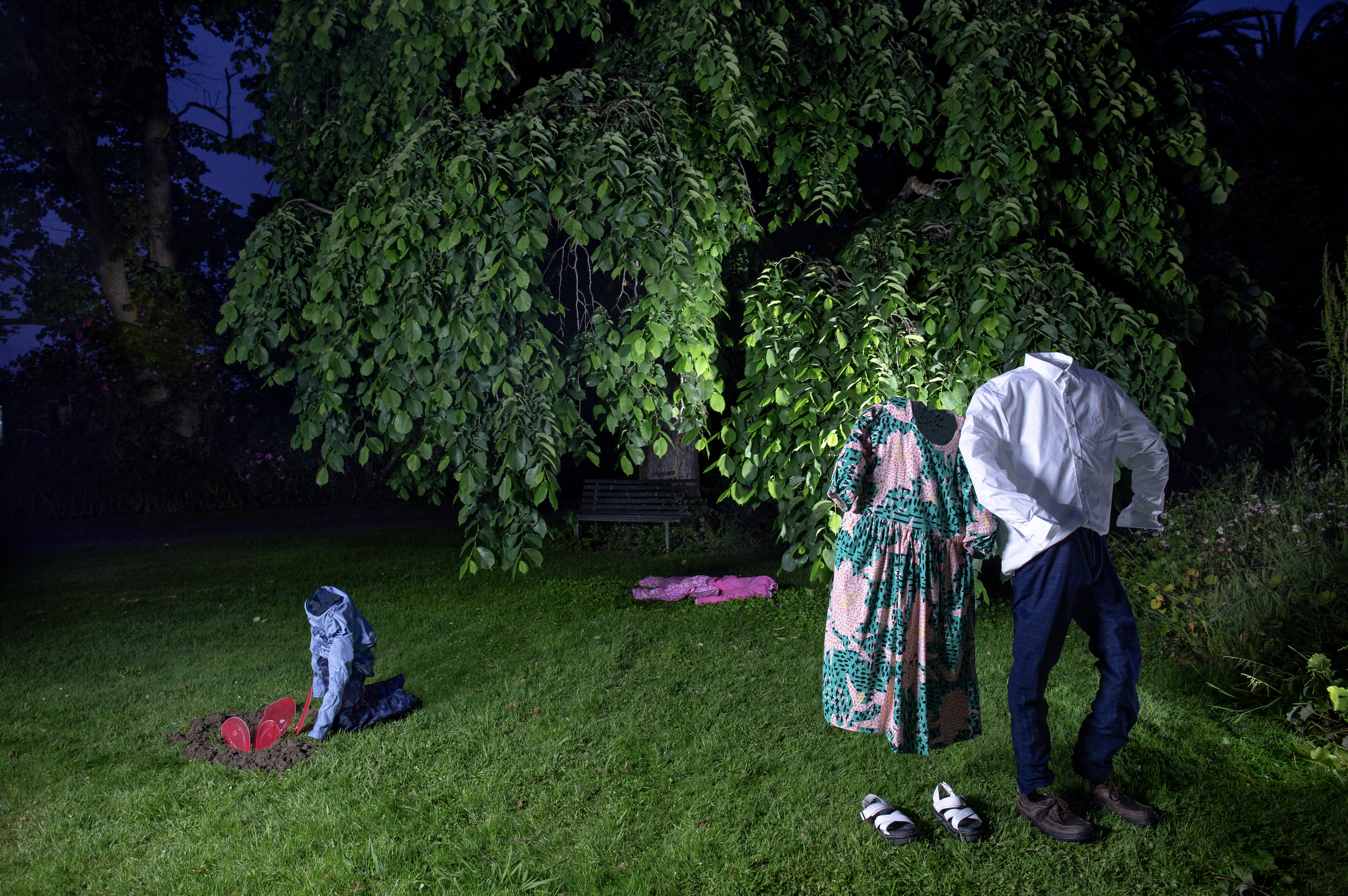Fragile grounds buried beneath myself
An artistic exploration into domestic queer upbringing
I watched those around me attentively as a child, expecting to live the life they did — not realising that what I desired was never intended for me. Fragile grounds buried beneath myself is a site-specific photographic, video and sculptural body of work that sets out to unpack and understand the many ways in which my queerness manifested during my childhood.
All the work was made in Palmerston North, in and around spaces that hold significant connection to my life. I wanted to reflect on the way I once inhabited these spaces, comparing that to how I interact with them now.
Visually, the motifs of my work remain similar throughout the project. The night is shrouded in darkness, a time to freely express without the necessity of hiding or fear of repercussion. Whereas the outdoor aspect counteracts this. I've put myself in a space open to being seen, open to judgement, and open to the consequences of choosing to express.
This body of work explores the idea of learned behaviours from familial and societal influences. Although the way I perceive the world around me is directly impacted by what I viewed, the heteronormative structures others fit so neatly into were not made for me. Nor were they intended to accommodate my lived experience.
Once I confronted this harsh reality, I tried to distance myself from anything that resembled heteronormativity — everything I knew and everything I was taught.
In my rebellion, I sought out casual sexual experiences and put myself in dangerous situations thinking I was rejecting the structures I was raised in. But I was merely seeking reflections of the relationships I saw around me, unconsciously playing into the very systems I was trying to resist.
This project has been one of trying to understand and piece together the heteronormative context I exist in. As a pākehā person, I've explored the gender norms I'm accustomed to being rooted in colonial constructs. Understanding that these constructs have created rigidity within my perception of my gender and my relationship to my family history.
Colonial ideologies surrounding gender and identity have created a framework that equates maleness with power and dominance. This framework insists that the more power I have over others determines my value as a man. This imposes an impossible standard for me to live up to — it's left the foundation of my identity unstable.
I have repeatedly held myself to the standards set by my predecessors, but if their views on identity were clouded, what real value do they hold in defining who I am or who I will become?



